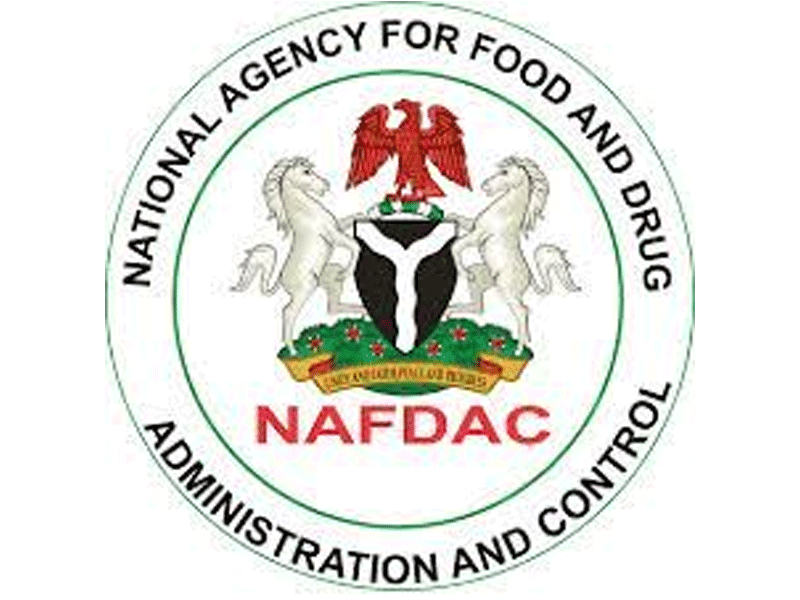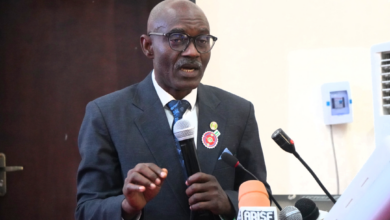NAFDAC Strike Worsens Pharma Manufacturers’ Struggles – PMG-MAN Chairman
Urges NAFDAC DG To Resolve The Strike

The ongoing strike by workers of the National Agency for Food and Drug Administration and Control (NAFDAC) has increased the challenges faced by pharmaceutical manufacturers, who cannot clear goods at ports.
The crisis could further strain the country’s healthcare system, as concerns grow over the potential influx of substandard drugs.
The Chairman of the Pharmaceutical Manufacturers Group of the Manufacturers Association of Nigeria ( PMG-MAN ), Oluwatosin Jolayemi, highlighted the adverse impact of the strike, stating, “So far, we have not seen any major delays except for those clearing goods at the ports. But if they can’t get NAFDAC approval, they won’t be able to clear their goods.”
It would be recalled that on October 7, NAFDAC workers under the Senior Staff Association of Statutory Corporations and Government-Owned Companies (SSASCGOC) began an indefinite strike.
The industrial action by the SSASCGOC is due to unresolved staff welfare issues with key demands, including a call to revise the results of the 2024 promotion exams (with a pass rate currently at 35 per cent), filling vacant director positions, reforming promotion exam processes, creating a psychology officer cadre, and settling unpaid salary arrears for staff recruited in 2022.
However, Jolayemi stressed that the pharmaceutical manufacturers’ challenges had extended beyond the NAFDAC strike.
“The real issue here is not just NAFDAC,” he said. “Manufacturers can’t even pay duties at the ports because of bank-related challenges. Even if NAFDAC resolves its issues, we still face the larger problem of being unable to pay duties.”
The PMG-MAN chairman pointed out that the inability to clear goods at the ports impacted all manufacturers, not just those in pharmaceuticals.
“Whether you are a pharmaceutical, leather, or soft drink manufacturer, you are directly or indirectly affected by the NAFDAC strike,” he added.
The strike also poses serious health risks, according to pharmacists and industry stakeholders.
A former President of the Pharmaceutical Society of Nigeria, Olumide Akintayo, raised concerns about how the strike could cause a disruption that might lead to the influx of substandard medicines into the country.
“When NAFDAC is on strike, the regulatory processes for drugs, food, and medical devices are slowed down, if not entirely jeopardized. Drug samples that should be analysed in laboratories face delays, and without NAFDAC presence at the ports, we cannot have proper documentation,” Akintayo explained.
He warned that the situation could worsen if NAFDAC management and its workers do not swiftly resolve their disagreement.
He noted, “This strike creates an opportunity for substandard drugs to enter the market. Some personnel who should oversee the process are affected by the strike, and this puts the public at risk.”
The pharmacist also criticised the government’s handling of industrial disputes, noting that the failure to address workers’ grievances often leads to avoidable strikes.
“The Joint Health Sector Union gave a 15-day ultimatum for their demands to be met, but the government failed to act. This is a pattern of negligence that we see repeatedly,” Akintayo said.
He urged the NAFDAC Director-General, Prof. Mojisola Adeyeye, to resolve the strike to prevent further disruption in the healthcare sector.
Meanwhile, NAFDAC in a statement signed by the Director General, Prof. Mojisola Adeyeye, appealed to the striking workers to return to work, stating that the agency has shown enough commitment towards addressing issues raised by the workers’ union.
Concerning the demand of the union that the 2022 agreement with management be gazetted, Adeyeye said that the issues relating to the hazard, productivity and regulatory allowances have been partially addressed by the Secretary to Government of the Federation (SGF).
She said that SGF has written to the Minister of Finance and Coordinating Minister of Economy to approve the allowances for NAFDAC Staff using the user fee.
On the revival of the training school in Kaduna, the DG said the Union was informed that training school in its physical form was considered as not feasible by the Council in 2022 because of the political and security situation in Kaduna.
According to Adeyeye the Online training school is already up and running in the agency since October 2023.
On the review of laboratory allowances, she said that NAFDAC appreciates the work being done by the staff, adding that financial constraint is affecting its ability to meet the demands.
Also, the DG said that when she came on board in 2016, there were only 13 Directorates and 13 Directors in NAFDAC, but that today we have over 28 Directors in the system due to the expansion her drive.
NAFDAC’s DG said that there has been 50 percent deduction on the Agency’s Internally Generated Revenue by the Federal government.
“Starting from January, 2024, 50 percent of the agency’s IGR was deducted from source by the government and this has impacted our finances. However, the management is open to an upward review of the Laboratory Allowances and will ensure that the payment is at flat rate across board,” she said.
While urging the workers to resume work, Adeyeye said: “You can see from the forgoing that the management did not downplay the grouse of the Union but took positive steps towards addressing them.
She assured that NAFDAC will continue to expand the structure to align with agency’s objectives, including the review of job-specific allowance.
“I can assure you that I will not rest until the issues are proper tackled.
Therefore, it has become necessary to appeal to you to return to work and get NAFDAC moving again. I appreciate your dedication, diligence and hard work,” she said.





